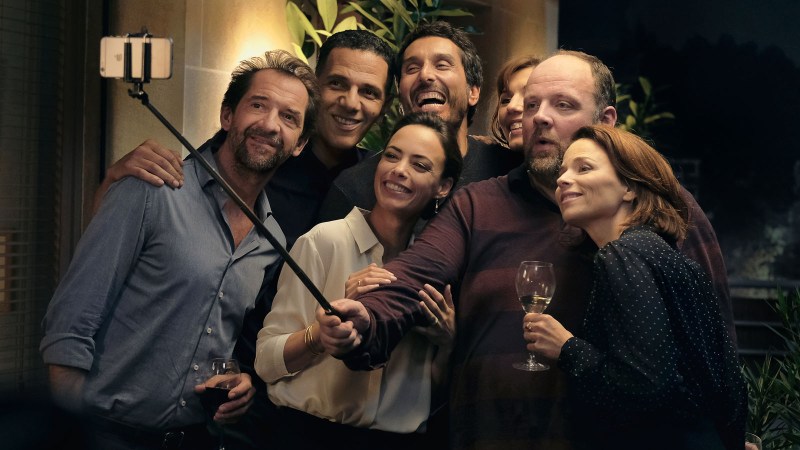Few things feel more vulnerable than handing your unlocked phone to someone. Even if they are an acquaintance, friend or family member, it feels like your life is in their hands. Indeed, I spend hours every day on my phone, assuming that no one will ever see what I texted someone or that I had to Google who Ban Ki-Moon is (especially embarrassing as I am a prospective International Relations major).
The new Netflix film, “Nothing to Hide” (French: “Le Jeu”) plays off this intense and distinctly modern fear. A remake of a 2016 Italian film (“Perfetti Sconosciuti”), the film revolves around seven friends meeting for dinner: three couples and one single man. It begins with the hosts, Marie and Vincent, a loveless couple, getting ready for the party. They are waiting for their friends Léa and Thomas, who are madly and maddeningly in love, constantly reminding their friends of their deep connection; Charlotte and Marco, who are exhausted by their little kids; and Ben, a single man whose date for the party could not come.
In the middle of the dinner, the conversation turns to the topic of phones having secret passcodes, and Marie calls smartphones the “black box” of relationships, claiming that, if everyone could look through their spouse’s phone, the number of divorces would skyrocket. When she notices the defensiveness with which her friends respond — especially her husband — she proposes a game; everyone must place his or her phone face-up in the middle of the table, read aloud any messages received, and place all calls on speaker. The guests reluctantly agree, and the game begins.
All kinds of trouble ensues, as secret lives and painful truths emerge. The players struggle to keep some privacy intact, yet the truth bursts out in spite of their stratagems. At times, it is difficult to believe that so many crucial text messages and phone calls are arriving so coincidentally, but the movie works best with a significant amount of suspension of disbelief.
Set completely in Marie and Vincent’s house, “Nothing to Hide” works like a play, especially given its performances that tend towards the theatrical. Suzanne Clément is transfixing in her portrayal of Charlotte, who uses alcohol to find solace from the apocalyptic night and whose emotions thus become more primal and explosive, ushering the audience into her mindset.
This empathy is crucial to the film’s power. Although the plot is gripping, the movie causes the viewers to wonder how they might feel in such circumstances. It obligates the audience to countenance the fact that they have catacombs locked away in their pockets, and it taps into the fear that these buried worlds might someday be breached and wandered through, with all the skulls lining the walls brought to light. “Nothing to Hide” makes viewers question their relationship with mobile devices, calling into question how much they use phones to truly communicate, rather than to build their own personal worlds that they imagine to be impenetrable.
Blending drama and comedy perfectly, the film is fresh and thrilling. The disappointing, nonsensical ending, however, falls terribly flat. It attempts to establish the movie as a feel-good fable but weakens its emotional punch. Moreover, it introduces elements of fantasy and magic that are completely out of line with the rest of the narrative.
“Nothing to Hide” is well worth your time, especially if you are looking for a movie that will make you reconsider the way you think about technology, while having a good laugh along the way. However, you would do yourself a service by removing your headphones, logging out of Netflix, and closing your computer before its disastrously dissonant conclusion.
Contact Juan Fueyo-Gomez at jfgomez ‘at’ stanford.edu.
